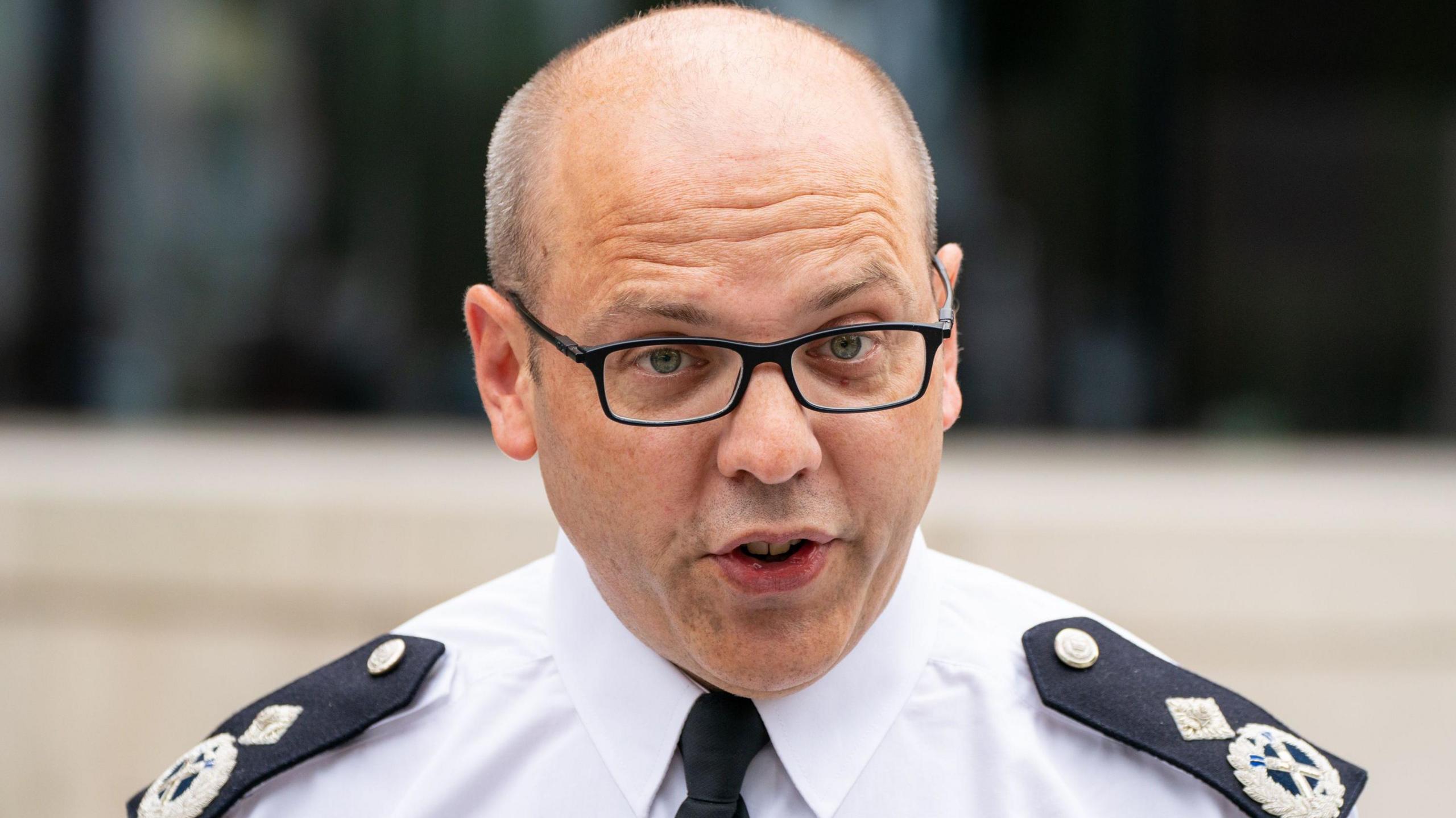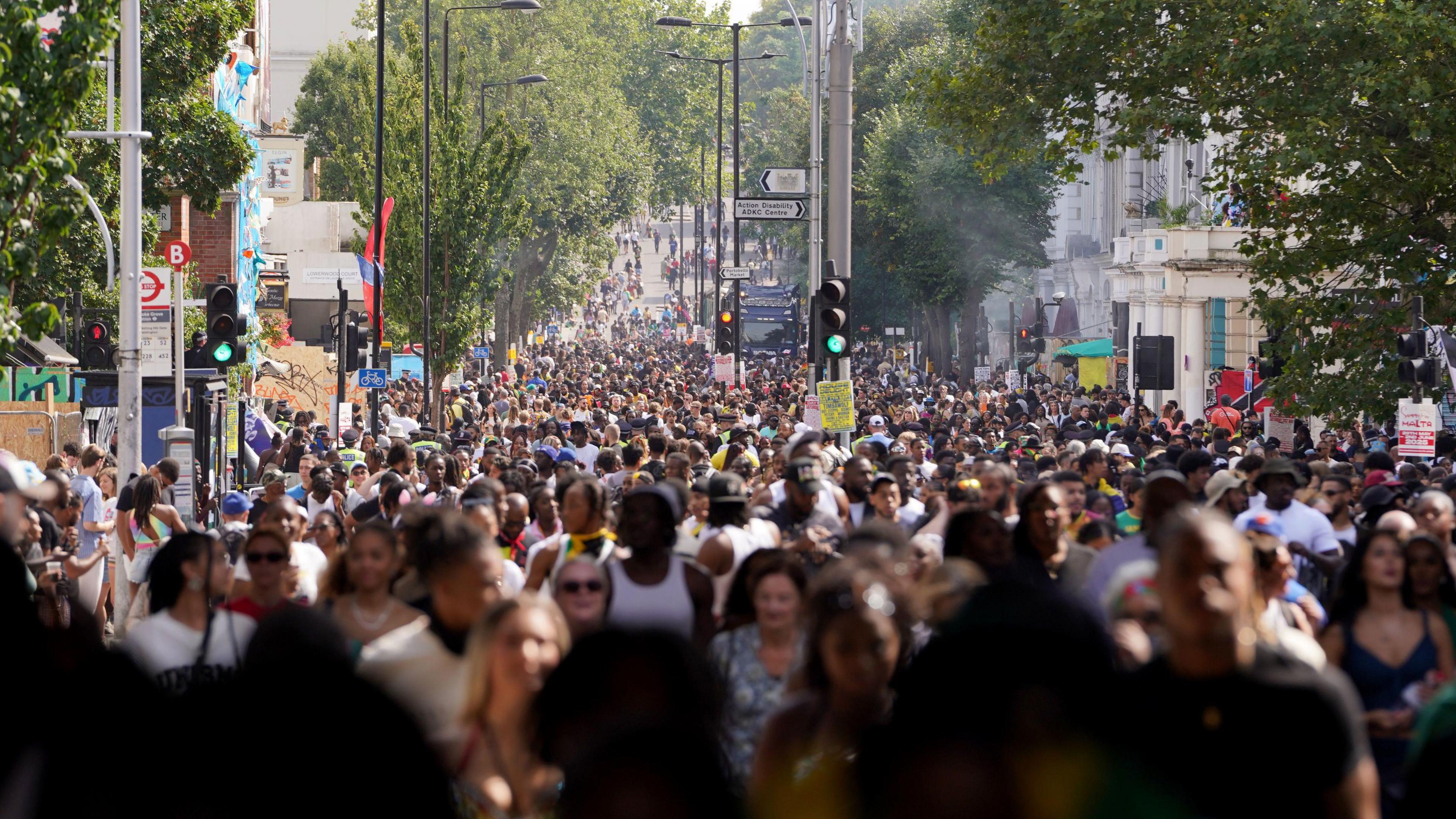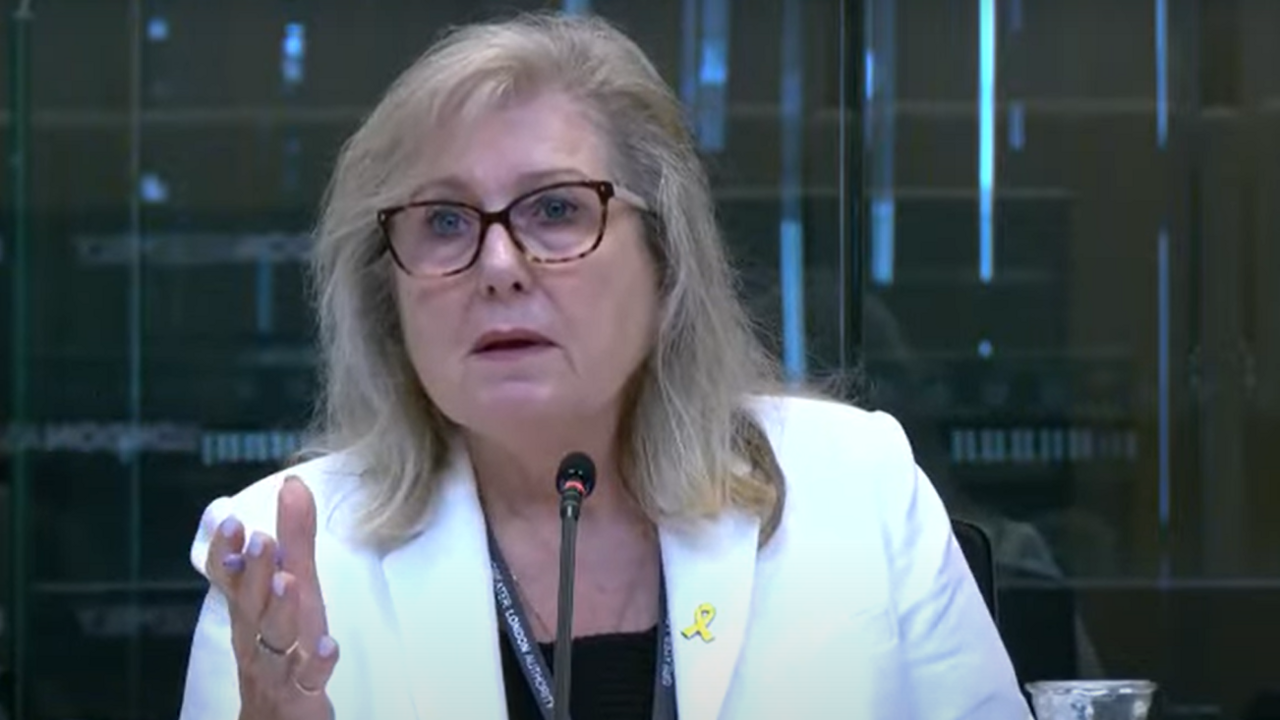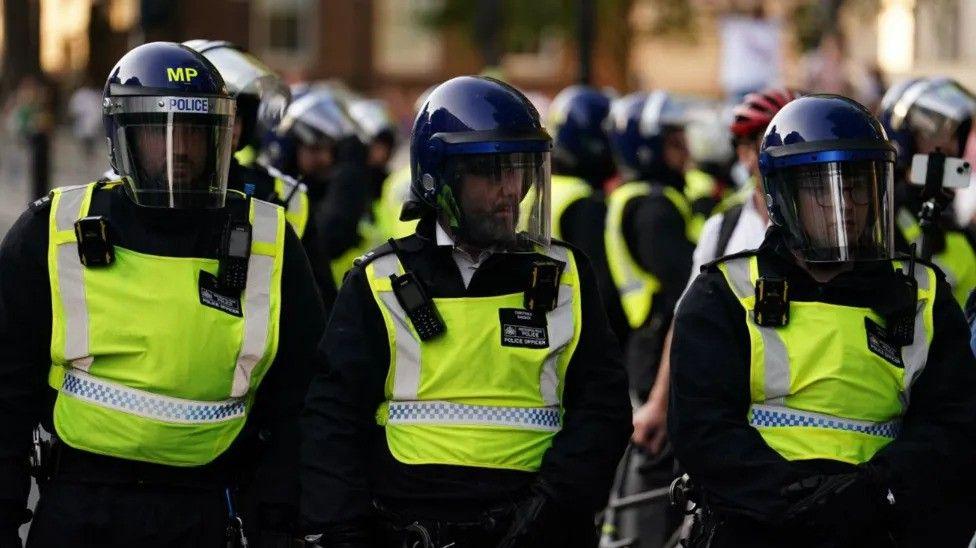Mass casualty crush biggest risk at Carnival - Met

Assistant Commissioner Matt Twist says carnival needs more stewards
- Published
A "mass casualty" crowd crush is the biggest risk at Notting Hill Carnival, a Metropolitan Police assistant commissioner has said.
Matt Twist said the west London event's organisers "did not have enough stewards" on shift over the carnival weekend.
Speaking at the London Assembly Police and Crime Committee hearing, external, he said 889 crimes were reported across the event, with 353 arrests.
Organisers Notting Hill Carnival Limited said it did not have the resources to compensate for a reduction in 1,200 police officers at the carnival, but said, "we are working with partners to see how we can secure that in future events.”
Mr Twist told the committee that Carnival was an "incredibly challenging event to police" with "significant violence, crime and crowd safety challenges".
"Crime often gets the headlines but actually the thing that worries me most is the crowd density and the potential for a mass casualty event," he said.

Overcrowding at Carnival made it harder for officers to get to incidents, the assistant commissioner said
The assistant commissioner added there had been "100 spontaneous incidents" observed by the crowd management team, which was tasked with monitoring crowd density and flow.
"We did have to step in a number of times to reduce crowd density in order to save life," Mr Swift told assembly members.
He also said overcrowding had an impact in policing crime as officers were unable to move freely.
Man charged with murder of mum at carnival
- Published9 September 2024
Man appears in court charged with murdering chef
- Published9 September 2024
Eight stabbed and 334 arrests at Notting Hill Carnival
- Published27 August 2024
Crowd management is primarily the responsibility of the organisers, Notting Hill Carnival Limited, who hire stewards.
Ahead of the event, organisers said they expected about one million people to attend over the carnival weekend - official crowd estimates for this year have not been released.
Mr Twist told the hearing his officers had to take on that role in many instances as there were not enough stewards stationed on certain parts of the parade route.
He added there were about 70 fewer stewards than at last year's event, and that the level of public funding provided to the organisers "remained flat" which was effectively a funding cut due to inflation.
The committee also heard the policing operation cost the Met a provisional figure of about £11.8m, of which the mayor of London contributed about £1m.

Former Conservative mayoral candidate Susan Hall suggested moving Carnival to a "more controlled" area
Susan Hall, the committee chair, said overcrowding and crime at the event warranted a debate over changing its location, a suggestion she said "doesn't go down well".
“We’ve got people coming in from all over the world and they will see the crime there," she said.
"We have police that cannot go to crime when they see it because they cannot move because they’re like sardines," she added.
Hall questioned whether it should be moved to a "more controlled area", a suggestion she put forward last year when she proposed moving it to Hyde Park.
Speaking after the then-Tory mayoral candidate's 2023 comments, Symone Williams, whose father was a founder, said if the event was taken out of Notting Hill, "then it's no longer Notting Hill Carnival. That makes no sense".
Mr Twist replied it was not for the Met to "design" the event.
“There are also many Londoners who feel carnival needs to remain in the community from which it sprung all those years ago and the connection with that location is very, very, important," he added.
Global visitors join Notting Hill celebrations
- Published26 August 2024
In pictures: Revellers dazzle in colourful Carnival costumes
- Published26 August 2024
Notting Hill Carnival: Partying like it's 1999
- Published26 August 2024
Ian Comfort, Chairman of Notting Hill Carnival Limited said organisers were "surprised" by Mr Twist's comments.
He said: "Our plans are reviewed by the Safety Advisory Group of which the Metropolitan Police are members. That group has not said that our plans are unsafe."
He added: "We also report to the Gold Group, which comprises senior officers of all agencies, again including the Metropolitan, City of London and British Transport police. That group has not said that our plans are unsafe."

More than 100 people were arrested during July's Whitehall disorder
Mr Twist also told the meeting that a "robust response" to riots in London may have helped prevent "copycat" disturbances spreading elsewhere in the capital.
During trouble in Whitehall on 31 July, 111 people were arrested. So far, 16 have been convicted, with the longest prison sentence being 46 weeks.
Listen to the best of BBC Radio London on Sounds and follow BBC London on Facebook, external, X, external and Instagram, external. Send your story ideas to hello.bbclondon@bbc.co.uk, external